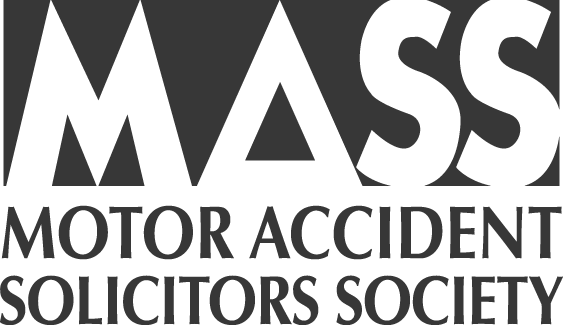The claimant’s details have been changed but this is indeed a true case
“I recently acted for Mrs B in connection with her claim” said Jason Claridge, Director and Personal Injury Specialist Solicitor at Ward & Rider Solicitors. “Mrs B had been a passenger in a vehicle which was being driven in the West Midlands on the M6 motorway when it was struck from the rear by the defendants vehicle. Mrs B had been recommended to us by family members to conduct her personal injury claim.
“We obtained a report from a General Practitioner that confirmed she had suffered injuries to her neck and back and also some psychological injuries. She recovered from the psychological injuries fairly quickly however, the physical injuries continued to trouble her. Therefore, we instructed an orthopaedic surgeon to examine her. Mrs B was proactive in seeking assistance for the ongoing symptoms from the soft tissue injuries to her neck and back. She tried some physiotherapy which assisted her a little but not hugely. She used pain killers for a while but did not like using them routinely. What she found to be most beneficial was deep tissue massages. The orthopaedic surgeon took the view that ordinarily he would have expected her to have recovered within 18 months. After a conference with the expert, which is something Ward & Rider Solicitors will do, he accepted that her pain was ongoing and by reference to medical definition, could be seen as chronic. Consequently he agreed after the conference to confirm that she should see a chronic pain expert.
“This was an important step for the claimant because the orthopaedic surgeon had struggled with the concept that she could have treatment which helped her but which was not necessarily prescribed by him in clinic or indeed the General Practitioner. Mrs B’s symptoms by the time she had seen the orthopaedic surgeon had settled into a distinct pattern. She had ongoing problems which affected her but she could function reasonably well, provided she had the deep tissue massages fairly frequently. She would have “flare ups” which then required her to have help with domestic activities such as the housework, shopping, cooking, DIY and gardening. The chronic pain management expert produced a report which in parts was a little confusing. Again, I entered into a conference with him to discuss her problems. We talked about her ongoing symptoms, we talked about her travel and treatment needs and in particular the need for continuing “maintenance” treatment in respect of deep tissue massages which he said he would advise in his NHS clinical practice. We also talked about the impact upon her career because although she worked at an office before the COVID-19 pandemic, she was required to travel and to carry equipment which she felt would trigger her symptoms which, after discussion, he accepted would be appropriate. Once we were in a position to, we released the medical evidence. We also drafted a schedule of financial losses which included her past treatment and travel as well as the help and assistance provided by her family (which was more significant in the early months following the accident) and the cost of the treatment that she had paid for in relation to deep tissue massages.
“In relation to the future losses, we allowed what essentially was a budget for the number of hours which would be required because the expert, when discussing the chronic pain, accepted that she would have flare ups which would last a few weeks at a time, between 3 and 4 times a year. During that period, his recommendations for treatment would include avoidance techniques which are designed to stop any aggravation of the problems she was experiencing as a result of these symptoms. We allowed for 5 sessions of deep tissue massage per year at a cost of £250 to £300 and this would be ongoing. We also allowed for a sum of money to take into account the over counter pain killers which she would require to use when suffering from a “flare up”. The claims value on our evidence was between £35,000 and £50,000. We started with an offer of £60,000, although we accepted this would be representative of a very best case scenario in relation to the valuation of her claim. I warned her that the major risk in her case was that our opponents would obtain from the court leave to allow them to instruct their own expert, namely an orthopaedic surgeon and a pain management consultant who may well give much less favourable opinions than we would receive.
“The defendants responded with an offer of £25,000. We advised them that this was rejected and we would be prepared to proceed to trial. They followed this with an offer of £35,000. After taking the clients instructions and in particular she wanted to see resolution of the claim, we agreed that we would offer them a sum of £40,000. The defendants rejected this and responded with an offer of £35,000. We then responded with an offer of £37,000 which was rejected but the parties agreed the sum of £36,000 in full and final settlement of her claim. Mrs B did advise me upon conclusion of her case, that she was glad she had followed the recommendation from her family and friends as some of the other people in the car (who had suffered very similar injuries which resulted from this very nasty car accident) had seen their claim settle for £5,000. I explained to her that each case is fact specific and I did not have access to the files for those individuals but she explained that they had the same sort of symptoms that she had and had therefore suffered from ongoing problems since the accident.
“I advised her I felt the offer was appropriate bearing in mind the litigation risks that she faced. I asked her what she intended to do with the compensation that she received. She explained she was, after the pandemic, going to take a nice holiday but she is going to use the bulk of the money for a deposit to allow her to purchase a house which she had been aiming to achieve for the last 5 years”.
We acted under a Conditional Fee Agreement, commonly referred to as a no win, no fee agreement. Ward & Rider Solicitors are more than happy to comment and assist wherever they can in relation to claims involving road traffic accidents, employers liability claims, tripping and slipping claims as well as medical negligence matters under a no win, no fee agreement.





